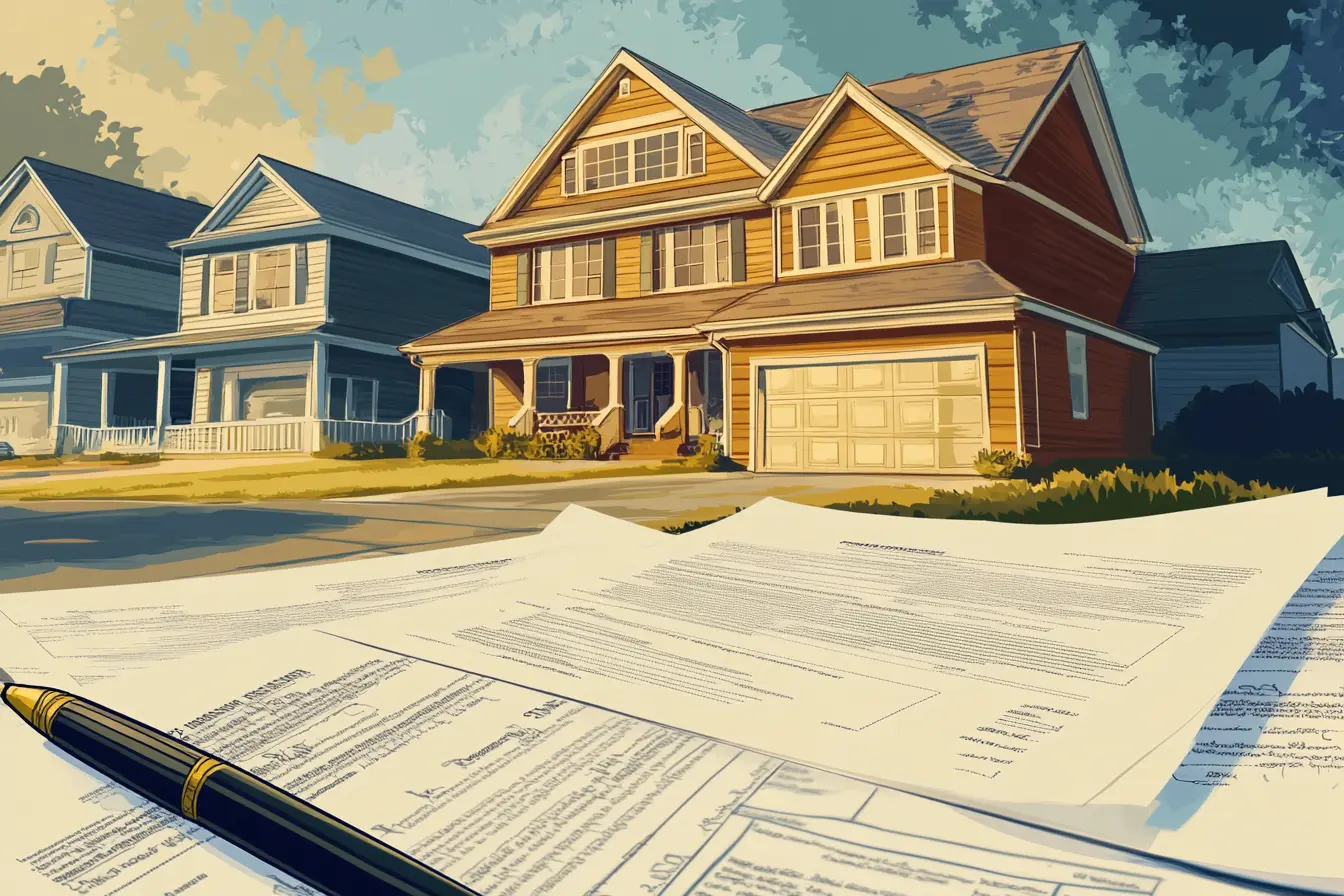Understanding Your Mortgage: Key Terms and Considerations

A mortgage is one of the most significant financial commitments a homeowner will make, and understanding its structure is crucial—especially in scenarios where a homeowner is deciding whether to rebuild after a disaster, sell a damaged property, or purchase a new home. Knowing how mortgages work, their key terms, and the financial obligations involved can help homeowners make informed decisions and avoid costly mistakes.
This article provides an in-depth look at mortgage fundamentals, key terms, and considerations when navigating homeownership or disaster recovery.
1. What Is a Mortgage?
A mortgage is a loan used to purchase a home or property. The lender provides funds, and in return, the borrower agrees to repay the loan over time with interest. Until the loan is fully repaid, the lender holds a Lien on the property, meaning they have a legal claim to it if the borrower fails to make payments.
More info: Mortgage Basics - Consumer Financial Protection Bureau
2. Key Mortgage Terms to Know
Understanding mortgage terminology is essential when evaluating loan agreements, Refinancing, or considering options after a disaster.
Loan Terms and Payments
Term | Definition |
|---|---|
Principal | The original amount borrowed from the lender. |
Interest Rate | The percentage charged by the lender for borrowing money. |
Monthly Payment | The amount due each month, which typically includes principal, interest, taxes, and insurance (PITI). |
Loan Term | The length of time the borrower agrees to repay the loan (e.g., 15, 20, or 30 years). |
Amortization | The process of gradually reducing loan balance over time through scheduled payments. |
Mortgage Types
Term | Definition |
Fixed-rate Mortgage | The interest rate remains constant throughout the life of the loan. |
Adjustable-Rate Mortgage (ARM) | The interest rate changes periodically based on market conditions. |
FHA Loan | A government-backed loan requiring a low Down Payment, ideal for first-time buyers. |
VA Loan | A mortgage available to eligible veterans and active-duty military members, often with no down payment required. |
Jumbo Loan | A loan that exceeds conforming loan limits, typically used for high-value homes. |
More info: Understanding Different Types of Mortgages - Federal Housing Administration
3. Mortgage Components Beyond Principal & Interest
Most homeowners are responsible for more than just paying back the loan. Additional costs can affect monthly mortgage payments and long-term affordability.
Key Mortgage Cost Factors
Property Taxes – Taxes imposed by local governments based on property value.
Homeowners Insurance – Required by lenders to protect against damage or liability.
Private Mortgage Insurance (PMI) – If a borrower puts down less than 20%, PMI may be required to protect the lender.
Escrow Account – Lenders may hold funds for taxes and insurance in escrow to ensure timely payments.
More info: Lender Escrow Accounts Explained - Consumer Financial Protection Bureau
4. Mortgage Considerations When Rebuilding or Buying a New Home
After a disaster, homeowners need to assess how their existing mortgage affects their ability to rebuild or purchase a new home. Several mortgage-related factors come into play:
Outstanding Mortgage Balance
Perhaps most importantly, if a home is destroyed, the mortgage must still be paid off.
If a homeowner decides to sell, insurance funds are typically first used to pay the lender before any excess funds are released.
Homeowners will need to cover any shortfall if the insurance payout does not fully satisfy the mortgage balance.
Securing a New Mortgage After a Disaster
Scenario | Impact on Homeowner |
Current Mortgage is Paid Off | Homeowner has financial flexibility to purchase a new home. |
Mortgage is Not Fully Paid | May limit ability to qualify for a new home loan. |
Using Insurance to Pay Off Mortgage | Can free up funds to purchase a replacement home. |
Seeking Additional Financing | Homeowners may need to explore disaster recovery loan options. |
More info: Mortgage Relief for Disaster Victims - Federal Housing Finance Agency
.webp)
5. Refinancing and Loan Modification Options
If a homeowner decides to stay and rebuild, they may need to refinance or modify their existing mortgage to access funds or lower payments.
Options for Refinancing or Adjusting a Mortgage
Cash-Out Refinance – Borrowing against home equity (on another property) to fund rebuilding.
Loan Modification – Lender adjusts loan terms to lower monthly payments.
Forbearance Programs – Temporary suspension of mortgage payments during disaster recovery.
More info: Lender Assistance Options - U.S. Department of Housing and Urban Development
6. Special Mortgage Programs for Disaster Victims
Government agencies and lenders offer specialized loan programs to assist disaster victims in rebuilding or purchasing a replacement home.
Available Programs
Program | Description |
FHA 203(h) Disaster Loan | Allows disaster victims to purchase or rebuild with low down payment requirements. |
VA Disaster Loan | Available to eligible veterans needing to replace their home. |
USDA Rural Housing Loans | Provides 100% financing for rural area homeowners affected by disasters. |
SBA Disaster Loans | Low-interest loans for homeowners and businesses recovering from disasters. |
More info: Government Loan Programs for Disaster Victims - U.S. Small Business Administration
Wrap Up
Understanding how mortgages work, their key terms, and financial obligations is essential for homeowners, especially those recovering from a disaster. Whether deciding to rebuild, sell, or buy a replacement home, knowing how mortgage terms affect your financial future can help homeowners make informed decisions.
Key Takeaways
Mortgages consist of principal, interest, taxes, and insurance (PITI).
Different loan types (fixed, ARM, FHA, VA) impact long-term costs.
Escrow accounts hold funds for property taxes and insurance.
Paying off an existing mortgage is critical before securing a loan for a new home.
Refinancing, loan modifications, or government programs can assist homeowners in disaster recovery.
Keep in mind, homeowners should consult mortgage lenders, real estate professionals, insurance professionals and financial advisors to explore options for rebuilding or purchasing a new home after a disaster.